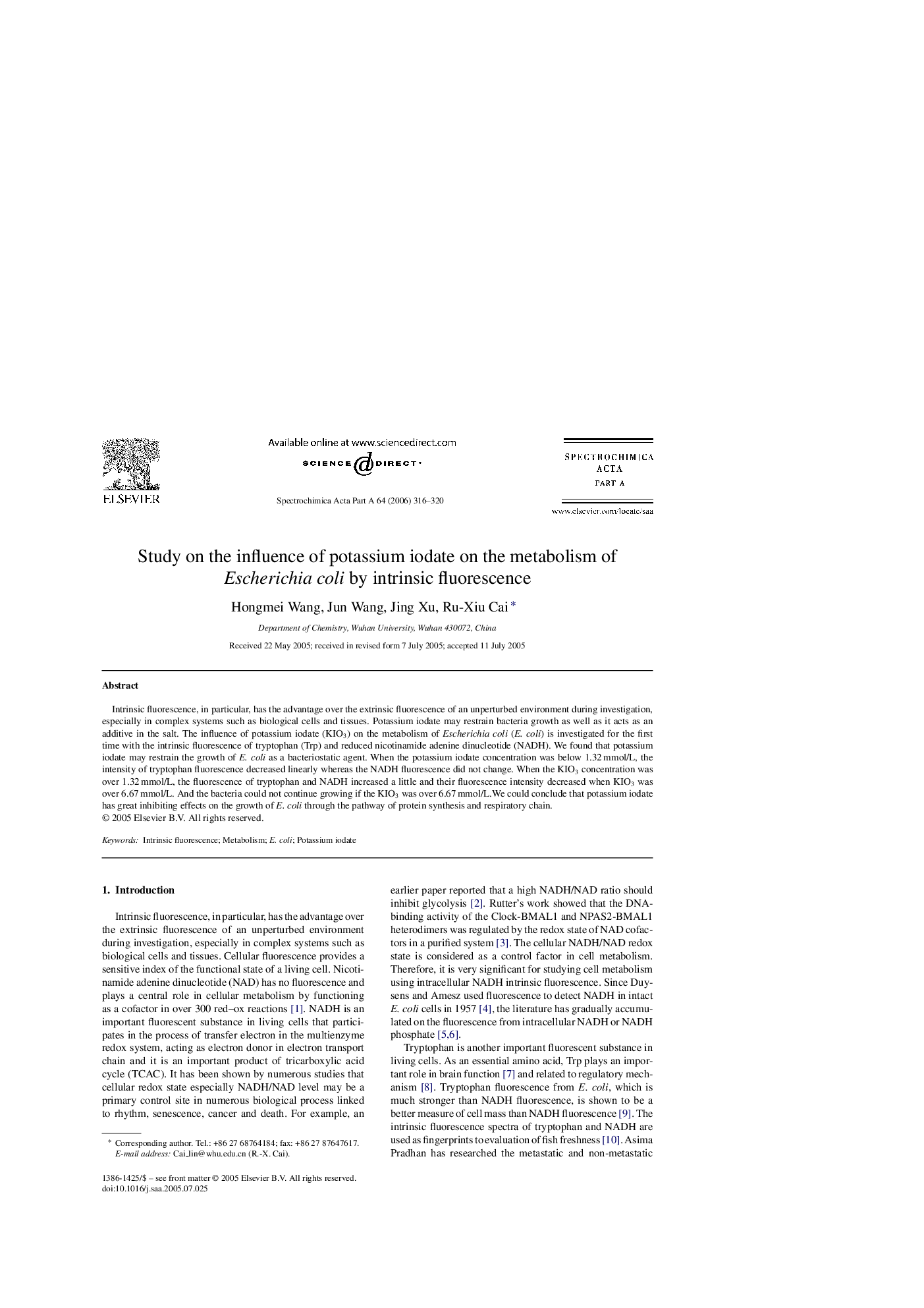| Article ID | Journal | Published Year | Pages | File Type |
|---|---|---|---|---|
| 1236567 | Spectrochimica Acta Part A: Molecular and Biomolecular Spectroscopy | 2006 | 5 Pages |
Intrinsic fluorescence, in particular, has the advantage over the extrinsic fluorescence of an unperturbed environment during investigation, especially in complex systems such as biological cells and tissues. Potassium iodate may restrain bacteria growth as well as it acts as an additive in the salt. The influence of potassium iodate (KIO3) on the metabolism of Escherichia coli (E. coli) is investigated for the first time with the intrinsic fluorescence of tryptophan (Trp) and reduced nicotinamide adenine dinucleotide (NADH). We found that potassium iodate may restrain the growth of E. coli as a bacteriostatic agent. When the potassium iodate concentration was below 1.32 mmol/L, the intensity of tryptophan fluorescence decreased linearly whereas the NADH fluorescence did not change. When the KIO3 concentration was over 1.32 mmol/L, the fluorescence of tryptophan and NADH increased a little and their fluorescence intensity decreased when KIO3 was over 6.67 mmol/L. And the bacteria could not continue growing if the KIO3 was over 6.67 mmol/L.We could conclude that potassium iodate has great inhibiting effects on the growth of E. coli through the pathway of protein synthesis and respiratory chain.
